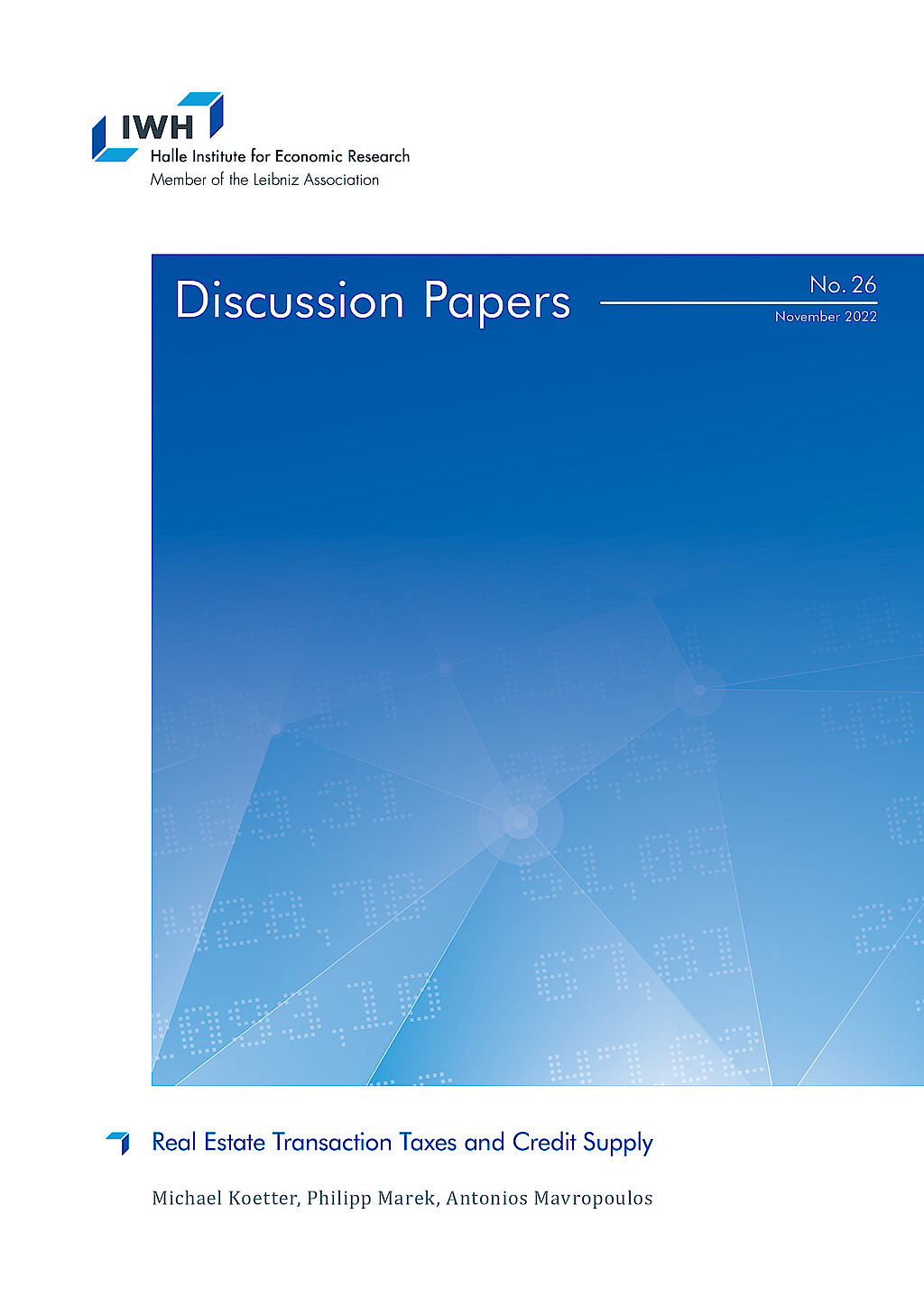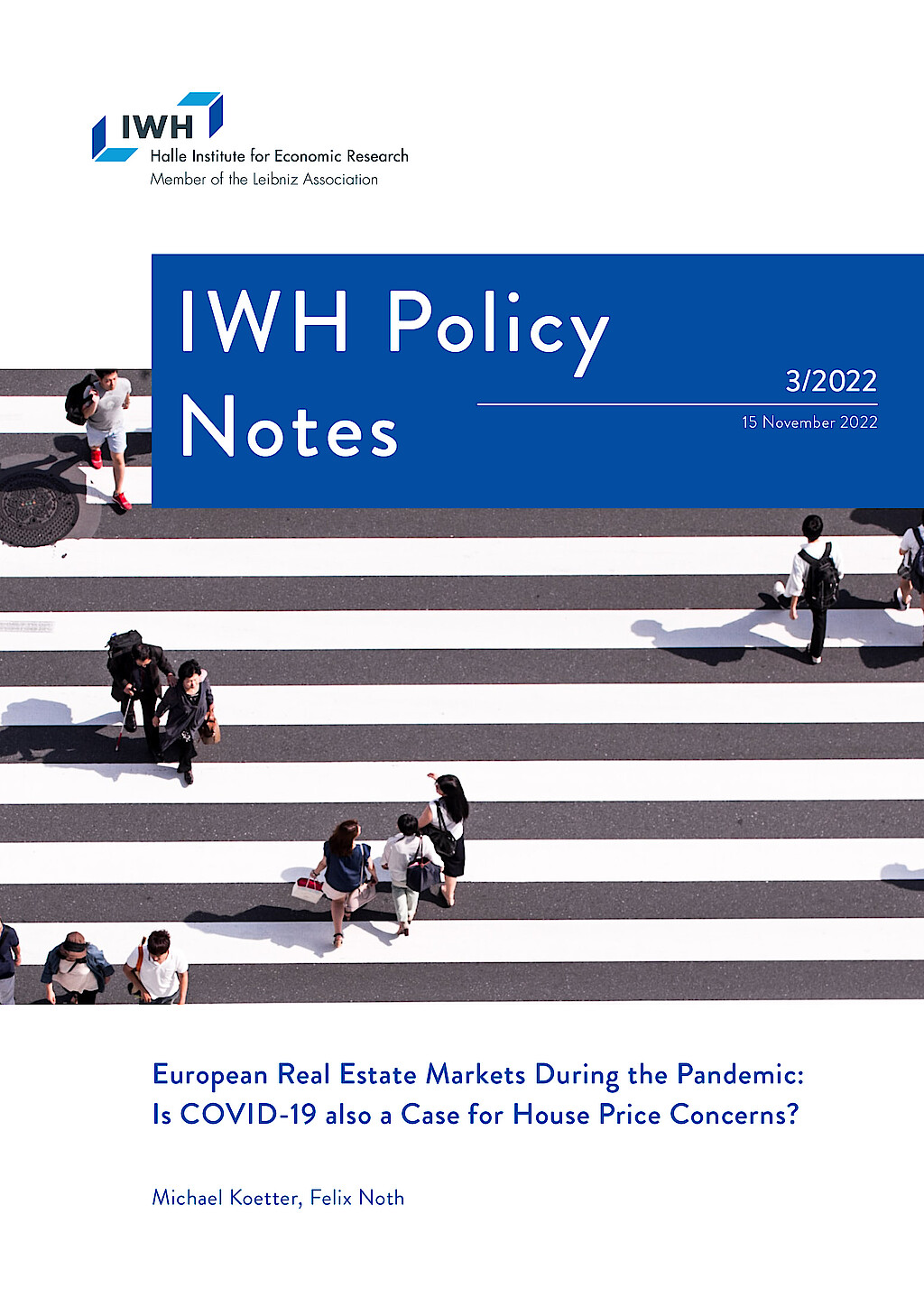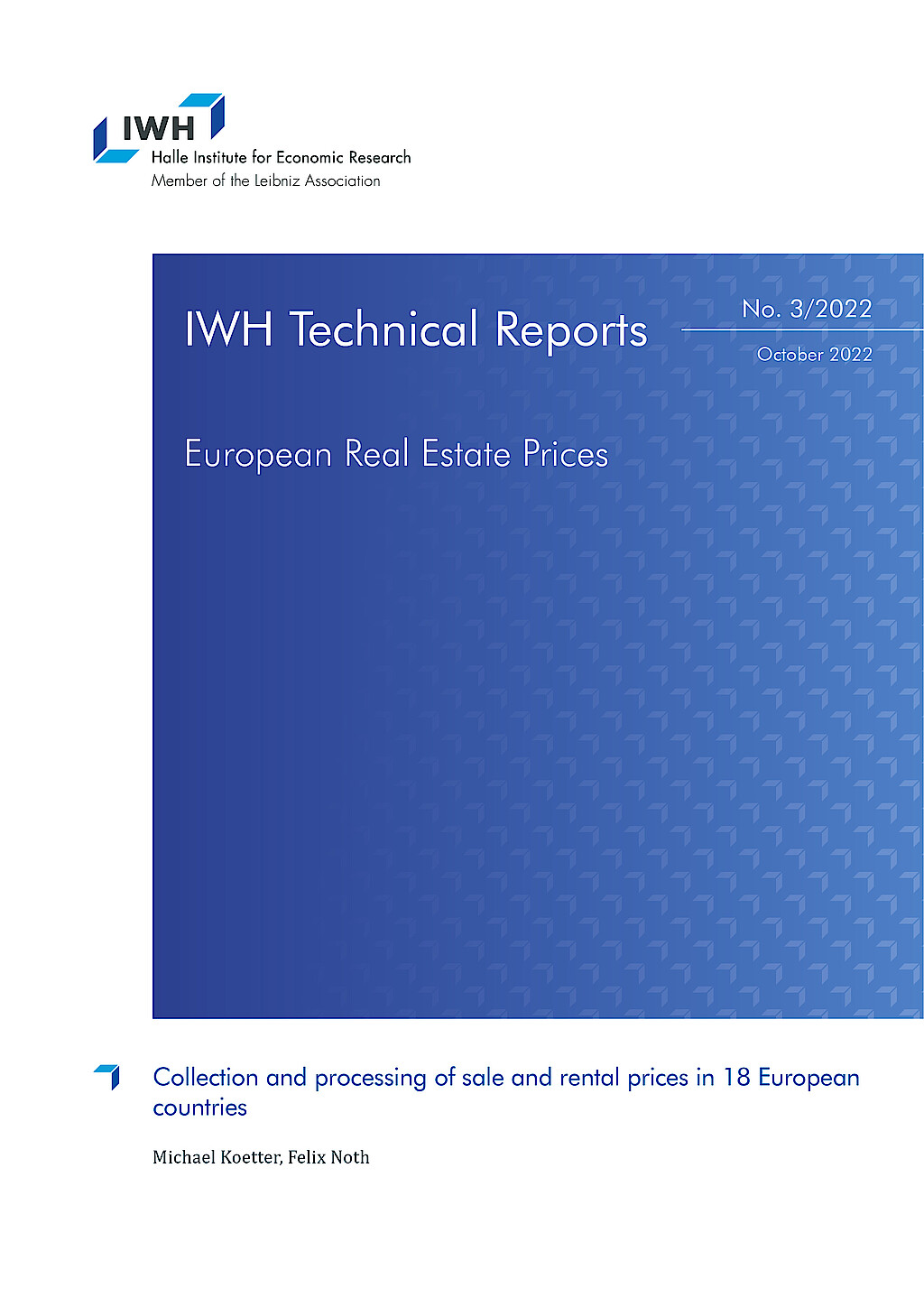Stricter rules for banks can relieve real estate markets
More company bankruptcies and inflationary pressure render it more likely that private individuals will default on their home loans. This can weaken financial stability, which in turn can create or deepen an economic crisis: Housing loans account for a large part of both the credits of German banks and private debt. So far, the German state has not been able to take sufficient action against overvaluations on the real estate market. This is shown by an analysis of the Halle Institute for Economic Research (IWH) using the example of real estate transaction tax, in German: Grunderwerbsteuer.
We need instruments that directly target the banks
It is true that a one percentage point increase in this tax in Germany causes residential property prices to fall by 1.2%. As a consequence, mortgage lending by regional banks is also reduced by 1.4%. However, the economists were able to prove these effects mainly in rural areas, but hardly and only with a delay in cities. "It is precisely where the overheating on the real estate market is greatest that the tax lets us down," says Michael Koetter, Vice President and Head of the Financial Markets Department at the Halle Institute. For the study, Koetter, together with his colleagues Philipp Marek and Antonios Mavropoulos, analysed 33 million housing advertisements that appeared on the portal Immobilienscout24 between 2007 and 2017. Since the real estate transaction tax was increased to different degrees at different times in the individual federal states, the economists were able to identify their effects.
According to financial economist Koetter, it is risky if too many banks have too many credits for overvalued real estate on their balance sheets. He argues that real estate markets should be fairly valued in order to prevent price bubbles and thus possible financial crises. However, this goal could hardly be achieved with tax policy alone. "We need instruments that directly target the banks," says Koetter. These instruments, such as lending restrictions, should be further developed at the European level. To this end, the competences of European institutions should be strengthened and the European Banking Union completed.
Publication:
Michael Koetter, Philipp Marek, Antonios Mavropoulos: Real Estate Transaction Taxes and Credit Supply. IWH Discussion Papers 26/2022. Halle (Saale) 2022.
Further publications and data on the topic of real estate markets:
Michael Koetter, Felix Noth: European Real Estate Markets During the Pandemic: Is COVID-19 also a Case for House Price Concerns? IWH Policy Notes 3/2022. Halle (Saale) 2022.
Michael Koetter, Felix Noth: European Real Estate Prices. Collection and Processing of Sale and Rental Prices in 18 European Countries. IWH Technical Reports 3/2022. Halle (Saale) 2022.
IWH European Real Estate Index (EREI): www.iwh-halle.de/erei
Whom to contact
For Researchers

Vice President Department Head
If you have any further questions please contact me.
+49 345 7753-727 Request per E-MailFor Journalists

Internal and External Communications
If you have any further questions please contact me.
+49 345 7753-832 Request per E-MailIWH list of experts
The IWH list of experts provides an overview of IWH research topics and the researchers and scientists in these areas. The relevant experts for the topics listed there can be reached for questions as usual through the IWH Press Office.
Related Publications

Real Estate Transaction Taxes and Credit Supply
in: IWH Discussion Papers, 26, 2022
Abstract
We exploit staggered real estate transaction tax (RETT) hikes across German states to identify the effect of house price changes on mortgage credit supply. Based on approximately 33 million real estate online listings, we construct a quarterly hedonic house price index (HPI) between 2008:q1 and 2017:q4, which we instrument with state-specific RETT changes to isolate the effect on mortgage credit supply by all local German banks. First, a RETT hike by one percentage point reduces HPI by 1.2%. This effect is driven by listings in rural regions. Second, a 1% contraction of HPI induced by an increase in the RETT leads to a 1.4% decline in mortgage lending. This transmission of fiscal policy to mortgage credit supply is effective across almost the entire bank capitalization distribution.

European Real Estate Markets During the Pandemic: Is COVID-19 also a Case for House Price Concerns?
in: IWH Policy Notes, 3, 2022
Abstract
We use a new database on European real estate purchase and rental prices – the IWH European Real Estate Index – to document the relationship between staggered COVID-19 dynamics and real estate prices in 14 EU countries between January 2020 and December 2021. For most countries, we find no statistically significant response of monthly purchase and rental prices due to an increase of regional COVID-19 cases. For the UK we find that more COVID-19 cases depressed both purchase and rental prices significantly, but the economic magnitude of effects was mild during this sample period. In contrast, rents in Italy increased in response to hiking COVID-19 cases, illustrating the importance to consider heterogeneous crisis patterns across the EU when designing policies. Overall, COVID-19 dynamics did not affect real estate values significantly during the pandemic, thereby mitigating potential financial stability concerns via a mortgage lending channel at the time.

European Real Estate Prices
in: IWH Technical Reports, 3, 2022
Abstract
<p>Real estate markets are pivotal to financial stability given their dual role as the underlying asset of crucial financial products in financial systems, such as mortgage loans and asset-backed securities, and the primary source of household wealth alike. As such, they also play traditionally a crucial role for the transmission of monetary policy. Imbalances and sudden corrections in real estate markets have been the root cause of many financial crises over the last decades. But whereas some national, often survey-based indicators of real estate prices are provided by central banks and statistical offices, a comprehensive collection of purchase prices, rents, and proxies for the liquidity of European real estate markets is lacking. The IWH European Real Estate Index (EREI) seeks to fill this void for residential property. This technical report describes the gathering and processing of sale and rental prices for properties in 18 European countries. We provide the general scrapeing step in the section before describing country-specific details for each country in separated sub-sections.</p>



